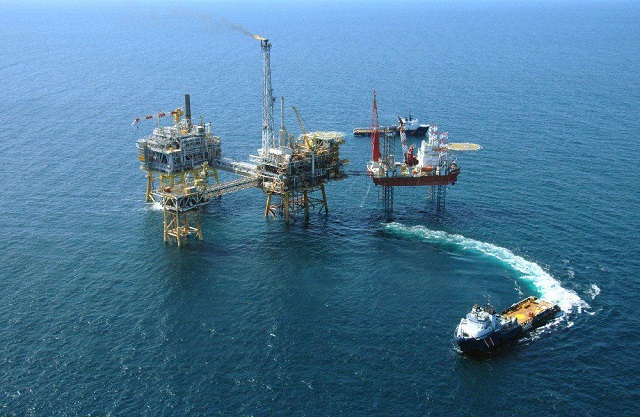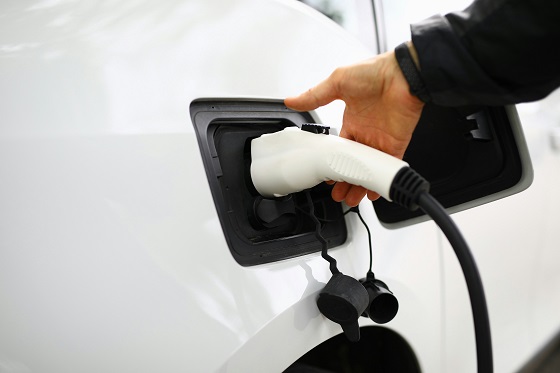Energy
Nova Scotia and Feds kill offshore gas for good

From the Frontier Centre for Public Policy
Nova Scotia and the feds kill an offshore gas project, while their bills are paid by Alberta and Saskatchewan oil and gas
Well, isn’t that just peachy? Nova Scotia’s Progressive Conservative government teamed up with the federal Liberal government to put a bullet in the head of the province’s natural gas industry, whose body was apparently still twitching, despite having been thought dead since 2018.
On December 4, Tory Rushton, Nova Scotia Minister of Natural Resources and Renewables, and Jonathan Wilkinson, federal Minister of Energy and Natural Resources issued a joint statement overruling approval of the offshore regulator, Canada-Nova Scotia Offshore Petroleum Board.
The dollar figure, so far, wasn’t much, just $1.5 million work expenditure bid for the now dead exploration license. But if successful, the company in question, Inceptio Limited, could have maybe, just maybe, revived the offshore gas industry in Nova Scotia.
According to the regulator, there were two bids for eight parcels in the Sable Island area, only one of which was satisfactory. To be clear – the Canada-Nova Scotia Offshore Petroleum Board was apparently seeking bids for development. As in, they actually wanted companies to come and develop these natural gas resources.
But I’ll bet my reporter’s fedora someone realized it didn’t look good for Minister of Environment and Climate Change Steven Guilbeault speaking at COP28 in Dubai about how Canada would be eliminating venting and flaring, while his partner in crime Wilkinson had it in his power to kill off a new methane (natural gas) project in an area that had been purged of the demon gas industry.
No sir. That could not stand. Thus, the announcement killing the Nova Scotia exploration project on the same day as the announcement of the venting and flaring ban. (Saskatchewan calls that a “production cap by default”)
The message is clear to industry – no more new projects if the feds can stop them.
It was very clear in the joint ministerial statement that no more gas projects will be approved, so stop trying.
The ministers overrode the board, saying, “We recognize the expertise of the board and want to reiterate our confidence in the regulatory process that it undertook. However, we both agree that this decision must also account for broader policy considerations, including our shared commitments to advance clean energy and pursue economic opportunities in the clean energy sector, which are beyond the scope of the board’s regulatory purview. This decision will enable us to research and understand the interactions between the two industries as we transition to our clean energy future.
“Leveraging the experience of the Canada-Nova Scotia Offshore Petroleum Board as a world class regulator, Canada and Nova Scotia are actively pursuing the establishment of a joint regulatory regime for offshore renewable energy by amending the Atlantic Accord Acts to expand the board’s mandate so that it can regulate and enable the development of an offshore wind sector in Nova Scotia.
“This will ensure that Nova Scotians can seize the economic benefits associated with the energy transition, including the projected $1-trillion global market opportunity for offshore wind.”
In other words, there’s no future in oil or gas for you, so now you’re going to regulate offshore wind.
Never mind that just a little further down the coast, offshore wind projects are dying off. Never mind that offshore developers are in dire fiscal straits, with billions in losses. Expect the “Offshore Petroleum Board” to get a new name in the coming days.
And shame on the Conservative government of Nova Scotia for going along with this. While the governments of Saskatchewan and Alberta are standing their ground, reasserting control over natural resources, the Nova Scotia Conservatives went along with this travesty.
It’s pretty easy to do, if you don’t have to pay your own bills with your own resources. After all, Nova Scotia gets a huge chunk of its budget from the federal equalization program.
Here’s what Deputy Prime Minister and Minister of Finance Chrystia Freeland wrote to Saskatchewan Deputy Premier and Finance Minister Donna Harpauer in the most recent round of equalization payments:
“In accordance with the legislated formula under the Act and its regulations, your province does not qualify for an Equalization payment for 2023-24.”
Alberta, which has a massive oil and natural gas industry, was similarly stiffed.
And here’s what Freeland wrote to Nova Scotia Minister of Finance Allan MacMaster:
“In accordance with the legislated formula under the Act and its regulations, your province’s Equalization payment for 2023-24 will be $2,802.8 million.”
Alberta and Saskatchewan pay into equalization, largely with money from oil and gas, but Nova Scotia will continue to draw $2.8 billion from it, bit not develop their own natural gas resources.
Nova Scotia’s hospitals are still being paid for by natural gas, except that it’s Alberta and Saskatchewan’s gas, not their own.
Pretty peachy, indeed.
Brian Zinchuk is editor and owner of Pipeline Online, and occasional contributor to the Frontier Centre for Public Policy. He can be reached at [email protected].
Bjorn Lomborg
How Canada Can Respond to Climate Change Smartly

From the Fraser Institute
At a time when public finances are strained, and Canada and the world are facing many problems and threats, we need to consider policy choices carefully. On climate, we should spend smartly to solve it effectively, making sure there is enough money left over for all the other challenges.
A sensible response to climate change starts with telling it as it is. We are bombarded with doom-mongering that is too often just plain wrong. Climate change is a problem but it’s not the end of the world.
Yet the overheated rhetoric has convinced governments to spend taxpayer funds heavily on subsidizing current, inefficient solutions. In 2024, the world spent a record-setting CAD$3 trillion on the green energy transition. Taxpayers are directly and indirectly subsidizing millions of wind turbines and solar panels that do little for climate change but line the coffers of green energy companies.
We need to do better and invest more in the only realistic solution to climate change: low-carbon energy research and development. Studies indicate that every dollar invested in green R&D can prevent $11 in long-term climate damages, making it the most effective long-term global climate policy.
Throughout history, humanity has tackled major challenges not by imposing restrictions but by innovating and developing transformative technologies. We didn’t address 1950s air pollution in Los Angeles by banning cars but by creating the catalytic converter. We didn’t combat hunger by urging people to eat less, but through the 1960s Green Revolution that innovated high-yielding varieties to grow much more food.
In 1980, after the oil price shocks, the rich world spent more than 8 cents of every $100 of GDP on green R&D to find energy alternatives. As fossil fuels became cheap again, investment dropped. When climate concern grew, we forgot innovation and instead the focus shifted to subsidizing existing, ineffective solar and wind.
In 2015, governments promised to double green R&D spending by 2020, but did no such thing. By 2023, the rich world still wasn’t back to spending even 4 cents out of every $100 of GDP.
Globally, the rich world spends just CAD$35 billion on green R&D — one-hundredth of overall “green” spending. We should increase this four-fold to about $140 billion a year. Canada’s share would be less than $5 billion a year, less than a tenth of its 2024 CAD$50 billion energy transition spending.
This would allow us to accelerate green innovation and bring forward the day green becomes cheaper than fossil fuels. Breakthroughs are needed in many areas. Take nuclear power. Right now, it is way too expensive, largely because extensive regulations force the production of every new power plant into what essentially becomes a unique, eye-wateringly expensive, extravagant artwork.
The next generation of nuclear power would work on small, modular reactors that get type approval in the production stage and then get produced by the thousand at low cost. The merits of this approach are obvious: we don’t have a bureaucracy that, at a huge cost, certifies every consumer’s cellphone when it is bought. We don’t see every airport making ridiculously burdensome requirements for every newly built airplane. Instead, they both get type-approved and then mass-produced.
We should support the innovation of so-called fourth-generation nuclear power, because if Canadian innovation can make nuclear energy cheaper than fossil fuels, everyone in the world will be able to make the switch—not just rich, well-meaning Canadians, but China, India, and countries across Africa.
Of course, we don’t know if fourth-generation nuclear will work out. That is the nature of innovation. But with smarter spending on R&D, we can afford to focus on many potential technologies. We should consider investing in innovation to grow hydrogen production along with water purification, next-generation battery technology, growing algae on the ocean surface producing CO₂-free oil (a proposal from the decoder of the human genome, Craig Venter), CO₂ extraction, fusion, second-generation biofuels, and thousands of other potential areas.
We must stop believing that spending ever-more money subsidizing still-inefficient technology is going to be a major part of the climate solution. Telling voters across the world for many decades to be poorer, colder, less comfortable, with less meat, fewer cars and no plane travel will never work, and will certainly not be copied by China, India and Africa. What will work is innovating a future where green is cheaper.
Innovation needs to be the cornerstone of our climate policy. Secondly, we need to invest in adaptation. Adaptive infrastructure like green areas and water features help cool cities during heatwaves. Farmers already adapt their practices to suit changing climates. As temperatures rise, farmers plant earlier, with better-adapted varieties or change what they grow, allowing the world to be ever-better fed.
Adaptation has often been overlooked in climate change policy, or derided as a distraction from reducing emissions. The truth is it’s a crucial part of avoiding large parts of the climate problem.
Along with innovation and adaptation, the third climate policy is to drive human development. Lifting communities out of poverty and making them flourish is not just good in and of itself — it is also a defense against rising temperatures. Eliminating poverty reduces vulnerability to climate events like heat waves or hurricanes. Prosperous societies afford more healthcare, social protection, and investment in climate adaptation. Wealthy countries spend more on environmental preservation, reducing deforestation, and promoting conservation efforts.
Focusing funds on these three policy areas will mean Canada can help spark the breakthroughs that are needed to lower energy costs while reducing emissions and making future generations around the world more resilient to climate and all the other big challenges. The path to solving climate change lies in innovation, adaptation, and building prosperous economies.
Business
Net Zero by 2050: There is no realistic path to affordable and reliable electricity

 By Dave Morton of the Canadian Energy Reliability Council.
By Dave Morton of the Canadian Energy Reliability Council.
Maintaining energy diversity is crucial to a truly sustainable future
Canada is on an ambitious path to “decarbonize” its economy by 2050 to deliver on its political commitment to achieve net-zero greenhouse gas (GHG) emissions. Although policy varies across provinces and federally, a default policy of electrification has emerged, and the electricity industry, which in Canada is largely owned by our provincial governments, appears to be on board.
In a November 2023 submission to the federal government, Electricity Canada, an association of major electric generators and suppliers in Canada, stated: “Every credible path to Net Zero by 2050 relies on electrification of other sectors.” In a single generation, then, will clean electricity become the dominant source of energy in Canada? If so, this puts all our energy eggs in one basket. Lost in the debate seem to be considerations of energy diversity and its role in energy system reliability.
What does an electrification strategy mean for Canada? Currently, for every 100 units of energy we consume in Canada, over 40 come to us as liquid fuels like gasoline and diesel, almost 40 as gaseous fuels like natural gas and propane, and a little less than 20 in the form of electrons produced by those fuels as well as by water, uranium, wind, solar and biomass. In British Columbia, for example, the gas system delivered approximately double the energy of the electricity system.
How much electricity will we need? According to a recent Fraser Institute report, a decarbonized electricity grid by 2050 requires a doubling of electricity. This means adding the equivalent of 134 new large hydro projects like BC’s Site C, 18 nuclear facilities like Ontario’s Bruce Power Plant, or installing almost 75,000 large wind turbines on over one million hectares of land, an area nearly 14.5 times the size of the municipality of Calgary.
Is it feasible to achieve a fully decarbonized electricity grid in the next 25 years that will supply much of our energy requirements? There is a real risk of skilled labour and supply chain shortages that may be impossible to overcome, especially as many other countries are also racing towards net-zero by 2050. Even now, shortages of transformers and copper wire are impacting capital projects. The Fraser Institute report looks at the construction challenges and concludes that doing so “is likely impossible within the 2050 timeframe”.
How we get there matters a lot to our energy reliability along the way. As we put more eggs in the basket, our reliability risk increases. Pursuing electrification while not continuing to invest in our existing fossil fuel-based infrastructure risks leaving our homes and industries short of basic energy needs if we miss our electrification targets.
The IEA 2023 Roadmap to Net Zero estimates that technologies not yet available on the market will be needed to deliver 35 percent of emissions reductions needed for net zero in 2050. It comes then as no surprise that many of the technologies needed to grow a green electric grid are not fully mature. While wind and solar, increasingly the new generation source of choice in many jurisdictions, serve as a relatively inexpensive source of electricity and play a key role in meeting expanded demand for electricity, they introduce significant challenges to grid stability and reliability that remain largely unresolved. As most people know, they only produce electricity when the wind blows and the sun shines, thereby requiring a firm back-up source of electricity generation.
Given the unpopularity of fossil fuel generation, the difficulty of building hydro and the reluctance to adopt nuclear in much of Canada, there is little in the way of firm electricity available to provide that backup. Large “utility scale” batteries may help mitigate intermittent electricity production in the short term, but these facilities too are immature. Furthermore, wind, solar and batteries, because of the way they connect to the grid don’t contribute to grid reliability in the same way the previous generation of electric generation does.
Other zero-emitting electricity generation technologies are in various stages of development – for example, Carbon Capture Utilization and Storage (CCUS) fitted to GHG emitting generation facilities can allow gas or even coal to generate firm electricity and along with Small Modular Reactors (SMRs) can provide a firm and flexible source of electricity.
What if everything can’t be electrified? In June 2024, a report commissioned by the federal government concluded that the share of overall energy supplied by electricity will need to roughly triple by 2050, increasing from the current 17 percent to between 40 and 70 percent. In this analysis, then, even a tripling of existing electricity generation, will at best only meet 70 percent of our energy needs by 2050.
Therefore, to ensure the continued supply of reliable energy, non-electrification pathways to net zero are also required. CCUS and SMR technologies currently being developed for producing electricity could potentially be used to provide thermal energy for industrial processes and even building heat; biofuels to replace gasoline, diesel and natural gas; and hydrogen to augment natural gas, along with GHG offsets and various emission trading schemes are similarly
While many of these technologies can and currently do contribute to GHG emission reductions, uncertainties remain relating to their scalability, cost and public acceptance. These uncertainties in all sectors of our energy system leaves us with the question: Is there any credible pathway to reliable net-zero energy by 2050?
Electricity Canada states: “Ensuring reliability, affordability, and sustainability is a balancing act … the energy transition is in large part policy-driven; thus, current policy preferences are uniquely impactful on the way utilities can manage the energy trilemma. The energy trilemma is often referred to colloquially as a three-legged stool, with GHG reductions only one of those legs. But the other two, reliability and affordability, are key to the success of the transition.
Policymakers should urgently consider whether any pathway exists to deliver reliable net-zero energy by 2050. If not, letting the pace of the transition be dictated by only one of those legs guarantees, at best, a wobbly stool. Matching the pace of GHG reductions with achievable measures to maintain energy diversity and reliability at prices that are affordable will be critical to setting us on a truly sustainable pathway to net zero, even if it isn’t achieved by 2050.
Dave Morton, former Chair and CEO of the British Columbia Utilities Commission (BCUC), is with the Canadian Energy Reliability Council.
-

 Alberta1 day ago
Alberta1 day agoPremier Danielle Smith responds to election of Liberal government
-

 2025 Federal Election1 day ago
2025 Federal Election1 day agoIn Defeat, Joe Tay’s Campaign Becomes a Flashpoint for Suspected Voter Intimidation in Canada
-

 Automotive2 days ago
Automotive2 days agoMajor automakers push congress to block California’s 2035 EV mandate
-

 Mental Health2 days ago
Mental Health2 days agoSuspect who killed 11 in Vancouver festival attack ID’d
-

 Banks1 day ago
Banks1 day agoTD Bank Account Closures Expose Chinese Hybrid Warfare Threat
-

 2025 Federal Election1 day ago
2025 Federal Election1 day agoPost election…the chips fell where they fell
-

 Alberta24 hours ago
Alberta24 hours agoNew Alberta Election Act bans electronic vote counting machines, lowers threshold for recalls and petitions
-

 Alberta23 hours ago
Alberta23 hours agoHours after Liberal election win, Alberta Prosperity Project drumming up interest in referendum




